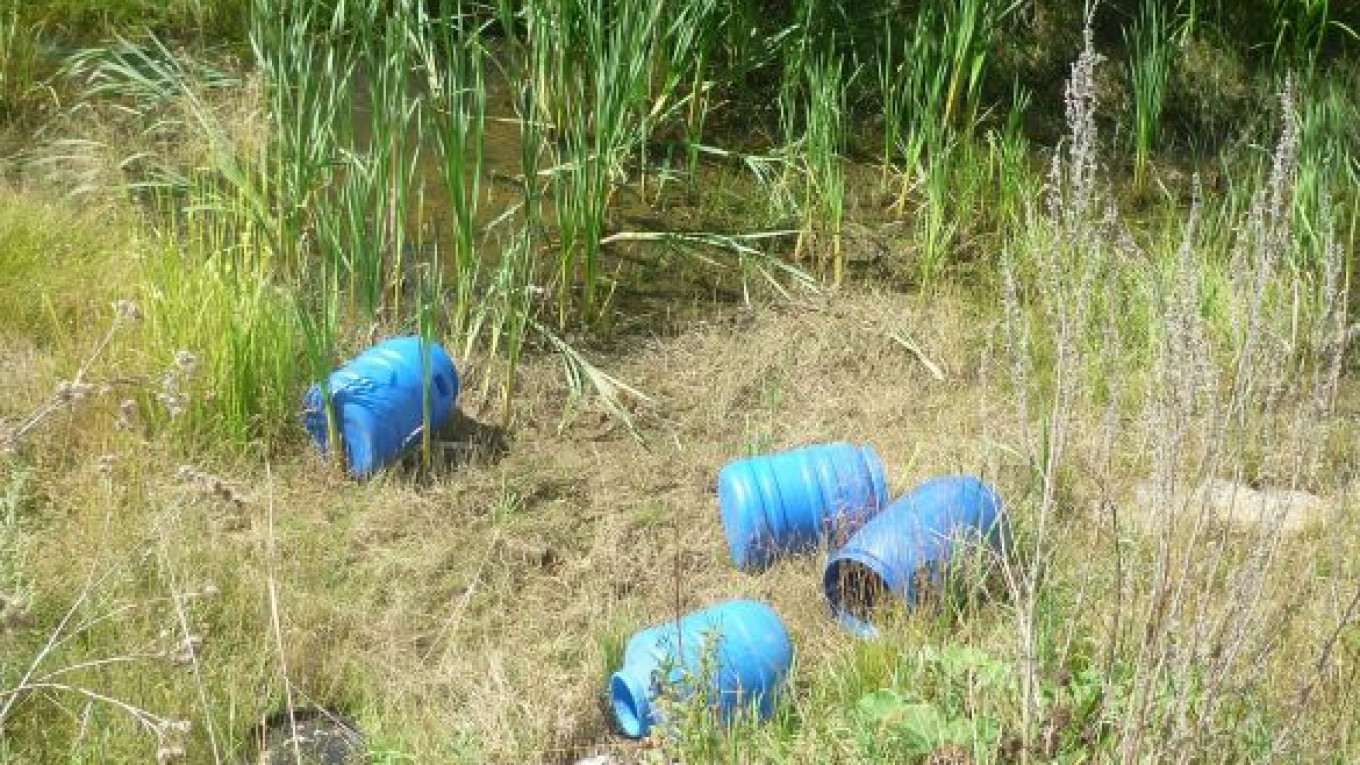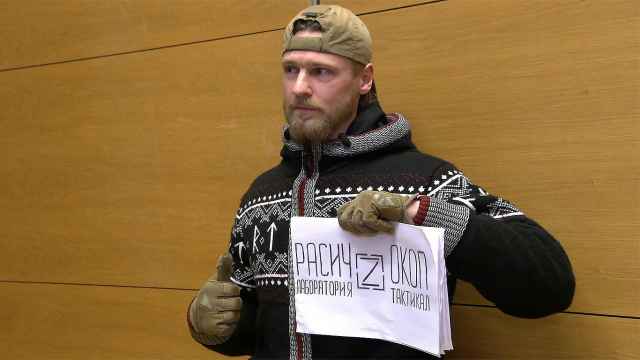Sverdlovsk region authorities are conducting an inquiry into the discovery of four barrels containing 248 human fetuses in a forest in the Urals.
Regional police said Tuesday that the "discovery worthy of a horror movie" was made by residents of the village of Anik late Sunday.
The police reported Monday that about 50 human embryos had been discovered in plastic barrels at a spot five kilometers from a highway linking the region's capital, Yekaterinburg, with Nizhny Tagil.
But the reported number almost quintupled by Tuesday morning when all the fetuses were counted.
Attached to the palm-sized fetuses, which had been preserved using formaldehyde, were tags containing surnames and numbers. Police believe that the numbers indicate the hospital wards where the women who produced them had been patients, Sverdlovsk region police spokesman Valery Gorelykh told Interfax.
The police suspect that one or more of the four nearby hospitals are responsible for dumping the barrels.
The barrels were apparently thrown into a ravine, where their lids detached and some of the unborn babies dropped out onto the ground, the police said.
Health officials in Yekaterinburg hurried to say in a statement Tuesday that all hospitals in the city have contractors that dispose of fetuses that might be the results of miscarriages or other incidents. The statement did not specify the companies that were responsible for disposing of fetuses.
The Sverdlovsk region health department said the fetuses could not be from abortions because of the tags attached, Interfax reported.
The Russian Orthodox Church denounced the fact that the fetuses were seemingly treated as garbage.
"The tragic fate of those who died before birth is a sign of the degradation of our society," Moscow Patriarchate spokesman Vladimir Legoida said in a statement.
A Message from The Moscow Times:
Dear readers,
We are facing unprecedented challenges. Russia's Prosecutor General's Office has designated The Moscow Times as an "undesirable" organization, criminalizing our work and putting our staff at risk of prosecution. This follows our earlier unjust labeling as a "foreign agent."
These actions are direct attempts to silence independent journalism in Russia. The authorities claim our work "discredits the decisions of the Russian leadership." We see things differently: we strive to provide accurate, unbiased reporting on Russia.
We, the journalists of The Moscow Times, refuse to be silenced. But to continue our work, we need your help.
Your support, no matter how small, makes a world of difference. If you can, please support us monthly starting from just $2. It's quick to set up, and every contribution makes a significant impact.
By supporting The Moscow Times, you're defending open, independent journalism in the face of repression. Thank you for standing with us.
Remind me later.






